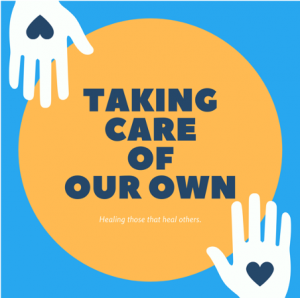The Taking Care of Our Own Program
What is the Taking Care of Our Own Program?
The Taking Care of Our Own Program (TCOOO) has been a cornerstone resource at UNC School of Medicine since its foundation in 2012. Our mission has always been to promote the well-being of our physicians and physicians in training by:
- Raising awareness about the unique challenges that come with working (and training) in healthcare
- Supporting educational initiatives and encouraging self-assessment for common problems facing providers including burnout, imposter phenomena, anxiety, depression, and moral injury.
- Highlighting, advocating, and implementing systems level changes to address provider well-being and reduce burnout.
- Reducing stigma and barriers to seeking appropriate mental health care.
- Providing timely access to tailored resources and referrals to convenient, confidential clinical services with expertise in well-being and mental health support both at UNC and in the greater community.
What does TCOOO offer?
- We provide education, support, advice, and if appropriate, professional referral for individual mental or physical help that meets your needs.
- We offer multiple different forms of mental health treatment that include evidence based therapies for burnout, depression and anxiety, and have developed a comprehensive referral base of providers who have experience caring for physicians.
- We work directly with each clinical department and division to implement educational programs with customized material for each clinical specialty, as the demands and stressors vary among the diverse fields of medicine.
- We work with medical training directors and other faculty to make necessary changes that greatly increase the odds that a training physician will be successful in their program.
Sometimes you don’t know what you need.
We’re here to help you figure that out.



